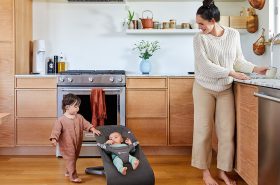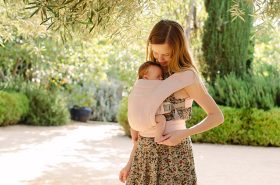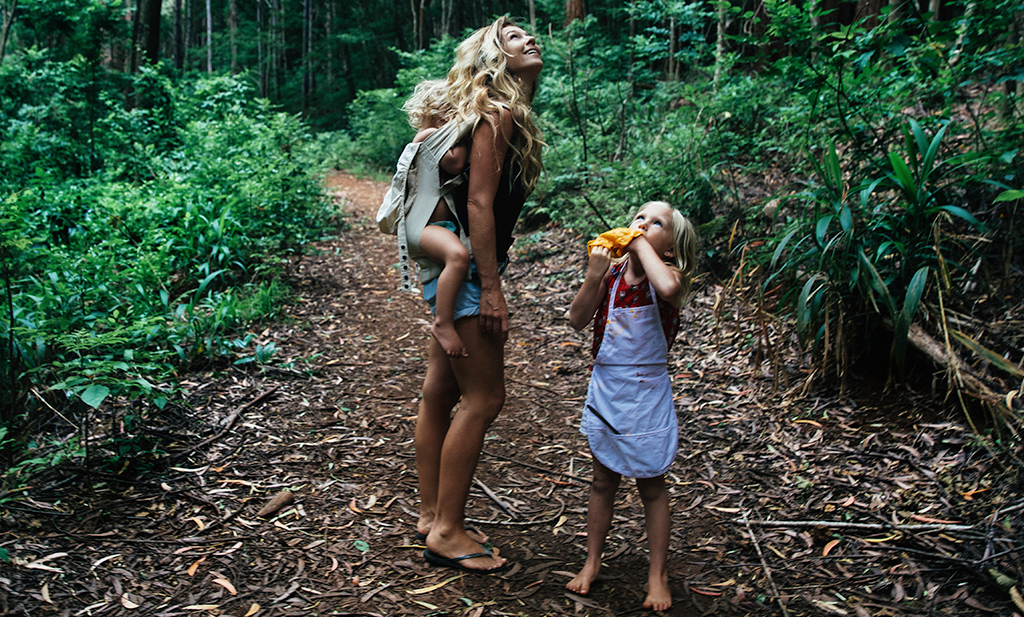
At Ergobaby, we are particularly concerned about protecting our planet for our children’s future. That’s why sustainability plays a major role in our corporate philosophy.
Living more sustainably starts with very small adjustments in your daily life. And, because we are parents ourselves and know that there is little time in everyday life with a baby and children to think about sustainability, we have put together our top 10 tips for a more sustainable approach:
1. Shop greener clothes: if you do not choose to buy brand new clothes for your baby, look for textiles with the GOTS label. This is an international label for organic textiles that was founded in 2002 and guarantees that textile production is environmentally and socially responsible. No harmful or carcinogenic substances are used. In addition, GOTS requires the creation of a sustainability plan that considers water and energy consumption as well as waste management.
2. Use reusable nappies: Although reusable nappies have a reputation for being unpleasant, the new versions are better looking and easier to wash. Plus, they’re gentle on your baby’s skin as they’re usually made of natural materials. Using them instead of disposable nappies is a great way to save money and the environment.
There are stylish waterproof nappies with cute prints and inserts available so that baby poop doesn’t end up in the washing machine with the cloth nappy. There are also thin, sturdy, and biodegradable fleece inserts that you can use to catch baby’s poop and dispose of it. Also, when you factor in the energy of washing and drying, reusable nappies produce less waste and emit 1.5 to 2.5 times less CO2 over their lifetime (manufacture, use and disposal) Vs. disposable nappies. In addition, washable nappies use up to 7 times less land than disposable nappies (land needed for raw material production).
3. Buy (some) baby items second hand: Certain baby items, such as clothing, high chairs and toys are safe to buy second hand if they’re clean and in good condition. Other baby items, such as car seats and cribs, should be purchased new purely for safety standard reasons.
4. Drying laundry outside: With a baby, a lot of laundry comes hand in hand. A tumble dryer can be a lifesaver but also expensive to run and costly on the environment. Try to dry every third wash on a clothes horse or washing line to save energy and money in the long run.
5. Choose sustainable baby items: In our production, we focus on water consumption, resource-saving manufacturing processes, packaging savings and CO2 emissions. We range sustainable baby carriers, such as the Omni Dream Denim made from upcycled denim and the Ergobaby Aerloom, whose air-permeable FormaKnit material is made from 87 percent recycled plastic bottles.
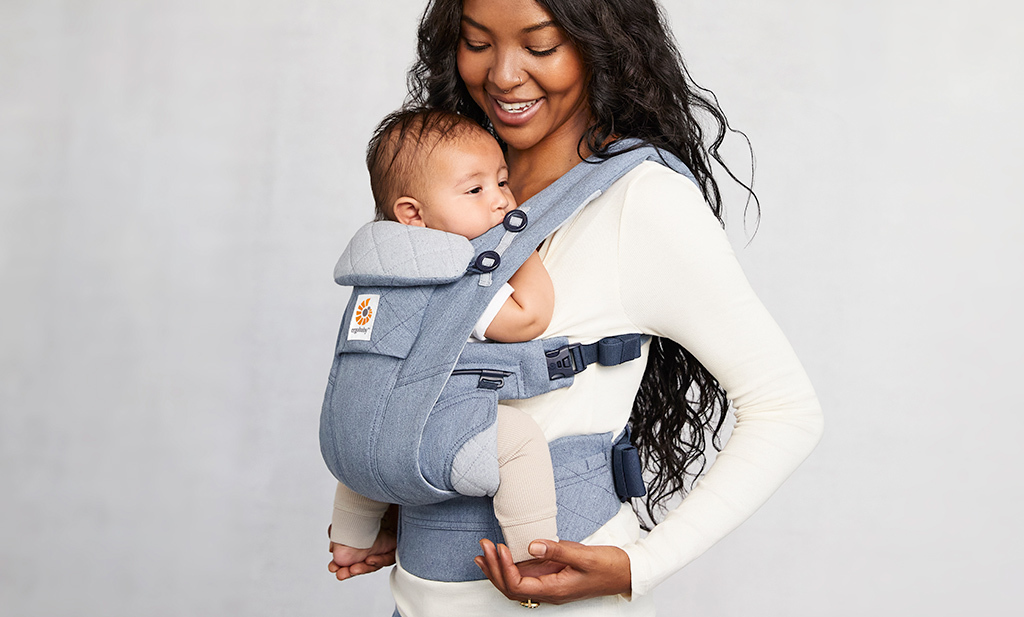
Handy hint: When washing your baby carrier use the new GUPPYFRIEND wash bag to protect your baby carrier. The wash bag catches and prevents synthetic microfibers from entering the environment through wastewater. Whilst reducing pilling, extending the life of your baby carrier and other synthetic clothes.
6. Use wet wipes when you’re on the move: Wet wipes are practical to use at home or when you are out and about. However, wet wipes create an incredible amount of wastage. If you want to live more sustainably, at least at home, switch to flannels (which can be washed hygienically at 60 °C).
7. Avoid plastic: There are many ways to reduce plastic in everyday life. Whether it’s shopping bags you take to the supermarket, use a reusable coffee cup or water bottle, not using plastic straws or avoid excessive food packaging. Have you heard of UNPACKAGEDAT retailer shops that offer refill stations at a range of fabulous independent retailers across the UK? Simply bring your own containers and shop without single-use packaging.
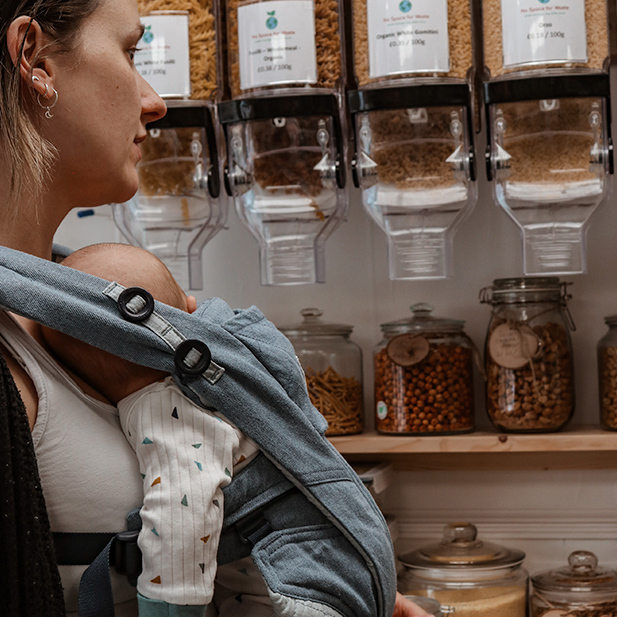
8. Reduce meat consumption: It is well known that conventional animal farming may not be in the best interests of animals and increases carbon footprint. Therefore: Try to eat less meat and animal products and, if possible, swap to meat substitutes are plant-based items.
9. Grow your own: Planting herbs, fruit, and vegetables in your garden, on your balcony or in an allotment is sustainable, fun and saves money. It is a great way for your children to learn that food doesn’t just come from the supermarket but can be found right on their doorstep. There’s another good reason: you will be growing local, seasonal products rather than buying food goods from the supermarket which may have been flown in from abroad.
10. Buy fresh foods as needed: Buying in bulk can be practical but it’s may not be beneficial for perishable items such as fruit, vegetables, and fresh meats. If left or forgotten in the fridge, may reach their sell by date and end up in the bin. Therefore: buy little and often according to your needs.
Sustainable living – every step counts.
Are there any tips that you could implement in your everyday life? It doesn’t have to be all the tips mentioned, and it doesn’t have to be every day. Remember, small adjustments have a big impact.
We at Ergobaby are not yet perfect when it comes to sustainability, but we keep at it and have our CO2 balance checked regularly to see where we can do even better with our resources. Focusing on sustainability is not only important but can also be a lot of fun. It gives us a good feeling to take responsibility and do something for the future of our children. Living more sustainably is an important building block for all of us.


